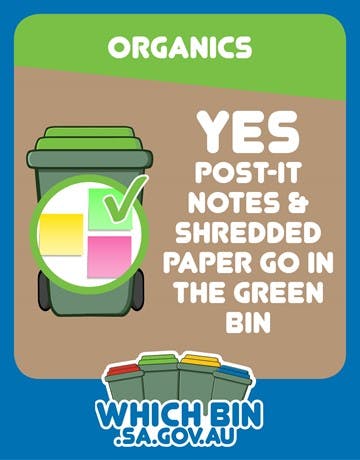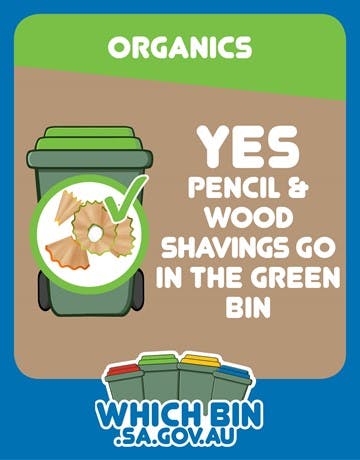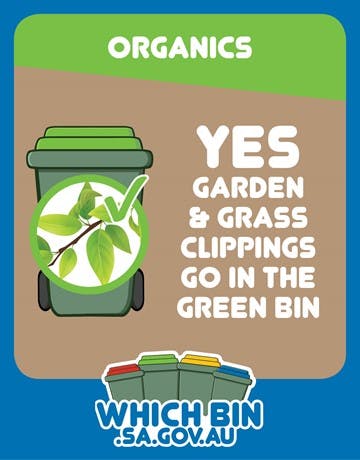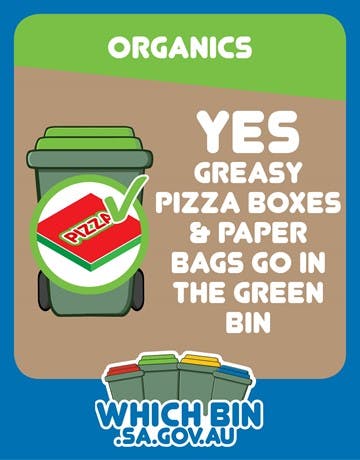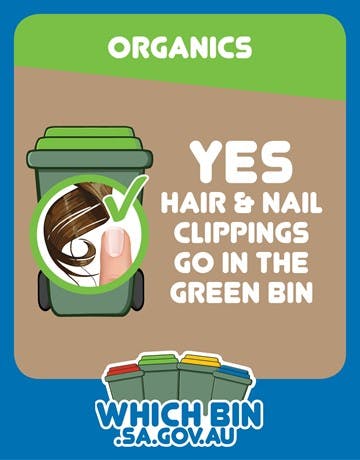Green Organics | Your Say
Consultation has concluded
Thank you for your feedback during the first round of consultation on Council's green organics and food recovery process.
You can now view a copy of the final consultation outcomes report here and in the document library on this page.
Next steps:
The next step is for this report to be presented at an upcoming Council meeting. We will use the feedback provided to inform the Green Waste Scoping Study which will be undertaken in the coming months.
After the completion of a draft Green Waste Scoping Study Council will work on developing options for improvements to green organic servicesContinue reading
Thank you for your feedback during the first round of consultation on Council's green organics and food recovery process.
You can now view a copy of the final consultation outcomes report here and in the document library on this page.
Next steps:
The next step is for this report to be presented at an upcoming Council meeting. We will use the feedback provided to inform the Green Waste Scoping Study which will be undertaken in the coming months.
After the completion of a draft Green Waste Scoping Study Council will work on developing options for improvements to green organic services and invite people to participate in a conversation about the options. This will likely take the form of a general survey to the wider community plus an online focus group.
If you are interested in being part of an online focus group please register below.
Did you know 30%-50% of what is wasted in general waste bins is food?
When food waste is sent to landfill it rots and releases methane, a harmful greenhouse gas with 21 times the global warming potential of carbon dioxide. At the Adelaide Hills Council we are committed to reducing waste that goes into blue bins and we need your help do to that.
The great news: Recovered food and garden organic waste can be turned into valuable nutrient rich products (compost and mulch) which help increase soil quality and water retention. Diverting these items from landfill also creates jobs and reduces disposal costs.
What's offered now?
Adelaide Hills Council offers its residents a number of options to encourage and enable recycling of food and garden organic waste.
- Food and garden organics bins (FOGO bins) are collected kerbside fortnightly from households in township areas (~10,000 households) and sent to a compost facility.
- Free green organic drop off days are held throughout the year (~14 days per year) across three sites.
- Residents without FOGO kerbside bins, (predominantly outside of township boundary areas), are eligible to receive two vouchers per financial year to dispose of organics at the Heathfield Resource Recovery Centre.
-
Green Bin tips
Share Green Bin tips on Facebook Share Green Bin tips on Twitter Share Green Bin tips on Linkedin Email Green Bin tips link- Line your bin. Line your bin to stop food sticking to the bottom of the bin. Use newspaper, shredded paper, cardboard (remove any plastic packaging tape first), pizza boxes, egg cartons, dry leaves, or garden clippings before you place food scraps in.
- Layer it – like a lasagne! Alternate layers of lawn clippings, leaves, shredded paper and newspaper between the food scraps to reduce odours and moisture.
- Leave the lid open. On warm sunny days, open the lid of your green bin to allow for aeration and drying of material.
- Put your green bin out for collection every fortnight, even if it isn’t full.
- Keep your green bin in the shade.
- Don’t overfill your bin, make sure the lid is closed properly.
- Wash your bin out from time to time using a high pressure hose and mild detergent.
-
Kitchen Caddy tips
Share Kitchen Caddy tips on Facebook Share Kitchen Caddy tips on Twitter Share Kitchen Caddy tips on Linkedin Email Kitchen Caddy tips link- Empty your caddy when full or every 2-3 days and rinse it after each use. For a more thorough clean you can use dish detergent or pop it in your dishwasher.
- Place dry materials such as tissues, paper towel, paper serviettes, shredded paper, toilet paper rolls, brown paper bags and compostable food packaging in the kitchen caddy to soak up odour and moisture.
- Freeze seafood, meat and dairy scraps until your collection day, then place them straight into your green bin the night before your collection.
- Sprinkle bi-carbonate (baking) soda on top of food scraps.
- Use a ventilated caddy lined with a breathable compostable BioBag or open the lid to allow for airflow.
-
How to detract insects and rodents
Share How to detract insects and rodents on Facebook Share How to detract insects and rodents on Twitter Share How to detract insects and rodents on Linkedin Email How to detract insects and rodents linkOverripe, rotting or decayed fruit and vegetables can attract small vinegar flies and other insects to your kitchen caddy and green bin. In addition to the above, the following tips can further prevent insects and rodents from becoming a problem:
- Eat ripened fruit and vegetables promptly or put them in the fridge until you can use them.
- Clean up any spills or mess around your caddy or green waste bin.
- Wrap rotten food in newspaper or paper towel and put it straight into your green bin or freeze in a separate container and put in your green bin the night before collection.
- Spray lavender or mint oil around the base of your kitchen caddy and green bin. This will help to deter vinegar flies in your kitchen caddy as well as flies, rats and mice around your green bin.
Who's Listening
-
AF
Phone 8400 0400 Email engage@ahc.sa.gov.au
Key Dates
-
05 October → 02 November 2020
Lifecycle
-
Open
Green Organics | Your Say has finished this stageThis first stage of the consultation is Open for contributions.
-
Under Review
Green Organics | Your Say has finished this stageContributions to this consultation are closed for evaluation and review. The Project team will report back on key outcomes.
-
Stage 1 Consultation outcomes report
Green Organics | Your Say is currently at this stageThe final outcomes of the first stage of the consultation are documented here. This may include a summary of all contributions collected as well as recommendations for future action.









